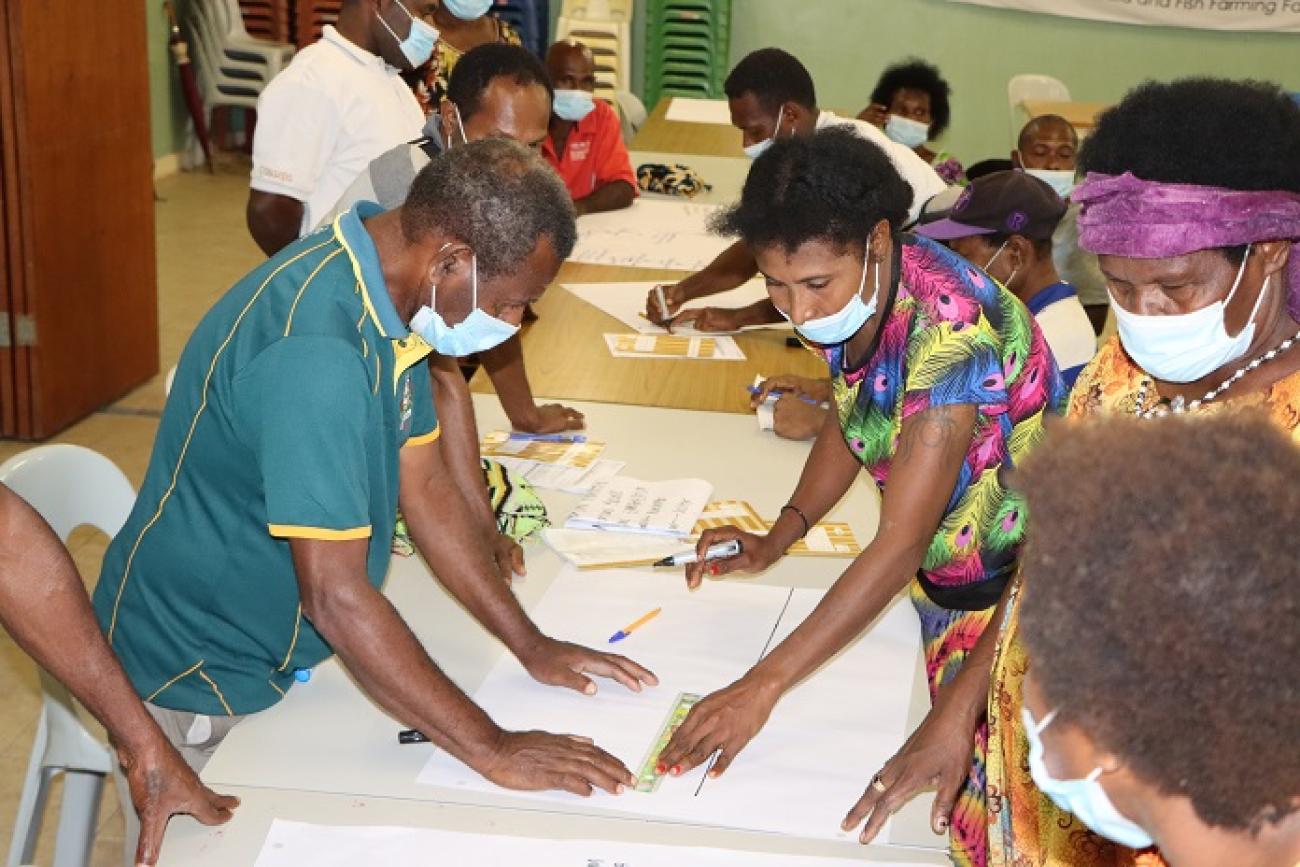EU-STREIT Highlights Critical Role of Women in Household Wellbeing

EU-STREIT PNG raises awareness on gender-based violence amongst cocoa, vanilla and fisheries communities in East Sepik Province.
Women play a crucial role in the wellbeing of a family through household income, food security and nutrition.
Dr Xuebing Sun, Programme Coordinator for the FAO-led European Union-funded Programme for Support to Rural Entrepreneurship, Investment and Trade Programme in PNG (EU-STREIT PNG) was sharing this undeniable observation during a recent training workshop for cocoa, vanilla and fish farming families in Wewak District, East Sepik Province.
“Limited access by women to knowledge, finance and production skills has a strong negative impact on agricultural production, food security and family well-being,” said Dr Sun.
The Programme Coordinator in his official opening remarks said for FAO this has been a hugely important opportunity to spotlight the connection between empowerment of women and food and nutrition security with rural development which compels us to look at these three issues together.”
“In the rural areas of the developing world, poverty and domestic conflicts are closely related to the agricultural cycle and food insecurity. Although every situation is different, there are common patterns to be seen like limited access by women to key information on finance literacy, production skills and other vital knowledge that has a strongly negative impact on agricultural production, food security and family well-being. But we know that change is possible, and change is what we must promote,” said Dr Sun.
The Programme Coordinator also acknowledged the Provincial Administration of East Sepik Province for supporting this important gender and youth inclusion training and in attendance to officiate at the opening was Jeffrey Yawi, Planning Manager who reflected on the close partnership with EU-STREIT PNG and East Sepik Provincial Administration to achieve National and Provincial Government. He said there is much greater need to increase gender equality and eliminate gender-based violence (GBV) in families and thank FAO as the lead implementing agency to address these problems in the Sepik.
This is the second training under the theme “Mainstreaming Gender Perspectives into Agri-food Value Chains”, which brought together 26 participants including 16 women in a 3-day training workshop on Wednesday 2 to Friday 4 June 2021, at the Sepik Centre of Hope in Wewak town.
Purpose of the training workshop was to raise awareness on gender-based violence amongst cocoa, vanilla and fisheries communities, and to promote economic empowerment and gender balance in decision making for individuals at the household and community level.
“We can’t change the mindset in one training but under the EU-STREIT PNG Programme, continuous awareness for youth and gender inclusion is critical and this is where we know that change is possible, and change is what we must promote,” says Programme’s Gender and Youth Inclusion officers Abbisa Maniapu and Zilpah Yahamani. “Gender is cross-cutting and when people are gender sensitized, family is intact and development takes place,” they added.
The training workshop on mainstreaming gender perspective in the agrifood value chain covered financial literacy, the steps and processes in setting up women’s and youth’s business group, as well as group dynamics, gender awareness and issues of gender-based violence within the three value chains as key training content.
The training will roll out to other districts of East and West Sepik Province as well.
The EU-STREIT PNG, being implemented as a UN joint Programme (FAO as leading agency, and ILO, ITU, UNCDF and UNDP as implementing partners), is the largest grant-funded Programme of the European Union in the country and the Pacific region, which focuses on increasing sustainable and inclusive economic development of rural areas through Increasing the economic returns and opportunities from cocoa, vanilla and fishery value chains and strengthening and improving the efficiency of value chain enablers including the business environment and supporting sustainable, climate proof transport and energy infrastructure development.”


